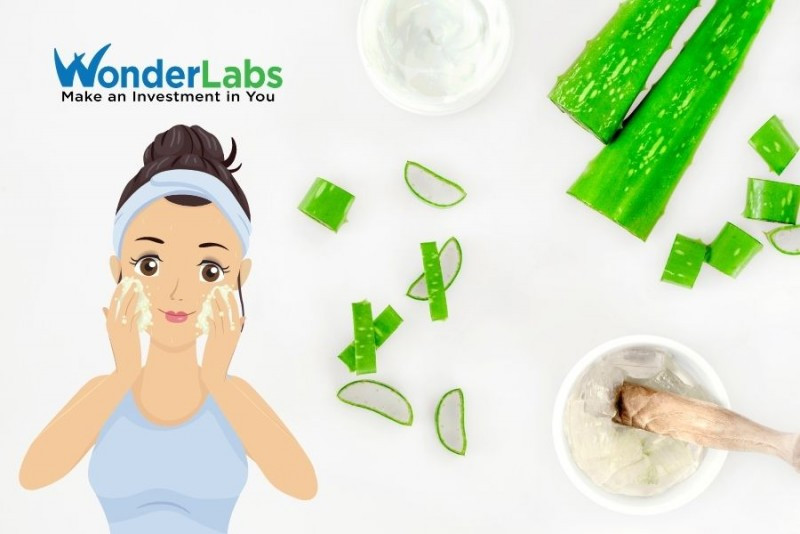We all want clear facial skin. Generally speaking, we are more confident and less self-conscious when our skin is clear. In this article, we'll take a look at some of the reasons why blemishes appear on the face, and some simple, natural treatments to help clear up your skin.
What Affects Your Complexion?
There are various types of facial blemishes that are common, with acne being No. 1 on the list. There are also a variety of factors that can cause blemishes to occur. The main source of facial blemishes is
when the facial pores become clogged with dead skin cells, sebum (an oily substance produced by glands in your body), or other skin oils. Whiteheads and blackheads tend to originate from pores in the upper layers of the skin becoming clogged, while pimples and acne tend to be caused by clogs in lower layers of the skin.
There are various factors in the body and the environment that can also increase the chances of blemishes on the face.
These include increased skin oil production, which is most often found during adolescence. Another is hormonal fluctuations, especially in women, and during pregnancy, menstruation, and menopause. Behavioral factors such as frequent touching of your face, eating certain foods (e.g., dairy), as well as experiencing stress, can also increase the chances of blemishing.
There are many methods available for eliminating acne and other blemishes. Cleansers, exfoliating creams, and other products abound. Finding the right product(s) can be time-consuming and expensive. Following are some simple, natural, and affordable treatments that can potentially diminish or even eliminate facial acne and blemishes.
Natural and Easy Remedies for Facial Blemishes
is a natural essential oil that is widely known for its ability to help clear up skin. Applying tea tree oil to the face is useful in clearing up blemishes, as well as uneven skin tone. It is
recommended that after washing your face, you apply a couple of drops of tea tree oil to a cotton ball and apply it gently to the blemishes on your face. Diluting tea tree oil with a more basic "carrier" oil is good,
especially for sensitive skin.
Sunscreen
might not be the most obvious treatment for keeping skin clear, but it can actually make a huge difference. Using a sunscreen that is oil-free can be of great benefit because it lessens the effect of UV radiation on your skin, which is just all-around good for your skin. You are less likely to develop blemishing, discoloration, and, obviously, burning, if you wear an oil-free sunscreen when
spending time outdoors.
is an astringent (meaning that it clears out excess secretions) which has long been regarded by dermatologists as a good potential remedy for blemishes. It works to
clear the pores on your skin, clear out excess oil, and also reduce inflammation. Like some other natural cleansing agents, witch hazel works well when added to a cotton ball, which is then gently dabbed on the affected areas of skin and allowed to dry.
is commonly used to soothe skin irritation from sunburn and other temporary irritants. It is useful in clearing up skin blemishes and redness as well. It can also give your skin a healthy glow, and it is noticeably
soothing while it is applied. It's recommended that you wash your face, apply aloe vera to the blemishes, leave it on for a few minutes, and then wash it off gently.
can be useful in keeping your skin clear. Vitamin A can actually help reduce the size of sebaceous glands, which produce oils on the skin. In turn,
oil production is decreased, and the pores of the skin are less likely to be clogged. When one's levels of vitamin A are less than adequate, pores are more likely to clog, and blemishes to form. Getting plenty of vitamin A through your diet and supplementation is very beneficial. Using a topical treatment containing vitamin A, such as a retinoid, is also very useful for skin blemishes.
Click Here to See Our Hair, Skin, and Nails Product Category.
All citations are hyperlinked.

